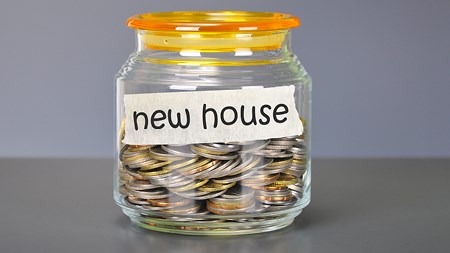South Africa’s housing markets should be booming: prices are dropping, interest rates are at 30 year lows and we have been told that the recession has been over for a good number of years. It may all look good on paper, but South Africans are still battling to come to grips with the changes in the market and perhaps, more than anything, the true price they now have to pay for a South African property.
It doesn’t take a brain surgeon to figure out that banks are far more reluctant to lend money to those seeking bond finance. Although the banks will tell you that the granting of 100% bonds has become more commonplace, the average home hunter is still finding that they have to pay a hefty deposit if they want to own a home.
Affordability still appears to be the biggest stumbling block. You can’t really blame buyers for assuming that they can buy for a higher price than they can really afford, after all, it wasn’t that long ago when banks were literally begging us to borrow money.
Sellers too seem to struggle with the idea that their homes are not going to fetch top dollar and there are still thousands and thousands of homes that are overpriced. While there may still be buyers out there who are willing to pay a premium, the banks are not. The second-biggest problem that South Africans buyers are now facing is that banks are not finding value in many of the properties that are currently for sale.
The third and perhaps the most common reason that bond finance is rejected is because of a bad credit history. Reams has been written about how important it is for home buyers to have an impeccable credit record. Jaco Rademeyer from Jaco Meyer Estates says that due in part to the National Credit Act, banks have clamped down on anyone whose credit history is even slightly tainted. “Whereas before banks may have overlooked the odd late payment in the past, these days records are scrutinised and if the banks are not happy with what they find, they will simply not grant bond finance.”
There are, however, ways of increasing the chances that the home you want is the home you get. Jan Kleyhans, CEO FNB home loans says that buyers should contact their bank and ask for guidance before they make an offer to purchase.
He says that those who don’t and who aren’t able to raise the necessary finance should be supplied with reasons why the bank has declined. “Anyone considering buying a home should first contact TransUnion ITC to obtain a free annual credit report. If they are in default this will indicate where they have gone wrong. Those who have defaulted should contact their creditors and seek to make payment arrangements over an agreed period of time.
Rademeyer says that although the fact that banks now usually require a deposit has been well documented, a large number of buyers are still unaware that they are going to have to do their part. “Although the banks have once again started to grant 100% bonds, the chances that buyers are going to be asked to put down a deposit before the banks will consider granting home finance. In addition to this, the banks’ lending criteria has become far stricter. Banks look at income and expenditure and, generally speaking, will only grant finance of between 30 to 40% on the remaining income after deductions.”
Kleynhans says that buyers with impeccable credit records and little or no debt often qualify for 100% bonds from FNB. The area in which the property is situated plays a role. “We classify areas into specific ratings based on property market economics and other risk factors. The opposite is true for higher-risk buyers who have lower quality credit records and higher debt records who wish to buy in less stable areas.”
It is pretty clear that buying a house is not as simple as it once was. There are, however, people in the banks and estate agents who can guide and advise you through the process. The entire exercise may not be completely painless, but by contacting those in the know before you put pen to paper may just take the sting out of the equation.

